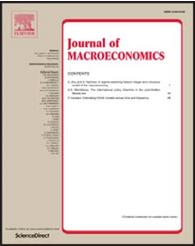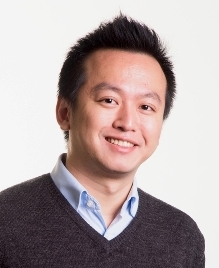
Journal of Macroeconomics ( July 2016 ) ,Angus C.
Chu, Yuichi Furukawa, Dongming Zhu发表文章Growth and
parental preference for education in China.
Growth
and parentalpreference for education in China
Angus C. Chu
China Center for Economic Studies, School
of Economics, Fudan University, Shanghai, China
Yuichi Furukawa
School of Economics, Chukyo University,
Nagoya, Japan
Dongming Zhu
School of Economics & Key Laboratory of
Mathematical Economics, Shanghai University of Finance and Economics

作者简介
朱智豪,Angus C. Chu,1978年生,美国密歇根大学经济学博士,现为复旦大学经济学院教授。在归国前为英国利物浦大学(罗素大学集团之一)经济学教授(Chair in Economics),现为利物浦大学名誉高级学人(Honorary Senior Fellow)。主要研究领域为宏观经济学、货币政策、经济增长、研发创新、知识产权。学术成果发表在European Economic Review, International Economic Review, Journal of
Development Economics, Journal of Economic Dynamics and Control, Journal of
Economic Growth, Journal of International Economics, Journal of Money, Credit
and Banking, Journal of Population Economics, Journal of Urban Economics,
Macroeconomic Dynamics, Review of Economic Dynamics等学术期刊上。根据经济学网站IDEAS按照经济学论文库RePEc数据进行的排名,是全球排名前10%的经济学家。目前为Bulletin of Economic Research (Impact Factor: 0.261)和Economic
Modelling (Impact Factor: 0.997)的副主编。
内容简介
Abstract:
This study explores the implications of
education preference in an innovation-driven growth model that features an
interaction between endogenous technological progress and human capital
accumulation.Parents invest in children’s education partly due to the
preference for their children to be educated. We consider a preference
parameter that measures the degree of this cultural preference for education.
We find that a society such as China in which parents place a high value on
education accumulates more human capital, which is conducive to innovation, but
the larger education investment also crowds out resources for R&D. As a
result, a stronger cultural preference for education has an inverted-U effect
on long-run growth.We also derive a closed-form solution for the transitional
path of the equilibrium growth rate from any initial state and find that a
strengthening of education preference causes an initial negative effect on
growth. Finally, we consider a number of extensions to the benchmark model.
Keywords:Education, Endogenous growth, Human
capital, Innovation
摘要:
本文用一个创新型内生增长模型探讨重视教育的程度对经济增长的影响,其特征在于内生技术进步和人力资本积累之间的相互作用。家长对下一代的教育进行投资,部分原因是他们重视教育。我们用一个偏好参数来衡量对教育重视的程度。我们发现,在中国这样一个社会中,父母在教育中所起到的作用对人力资本的积累起到了重要的作用,这有利于创新,但更大的教育投资也排挤了其他有生产力的投资。结果,增强对教育重视的文化对长期增长具有倒U型效应。太过於重视教育会对经济增长产生负面影响。
关键词:教育;内生增长;人力资本;创新
